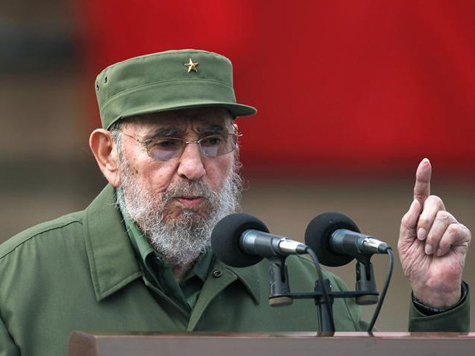
Cubans and Cuban-Americans in Miami-Dade County strongly support keeping Cuba on the U.S. terror watch list, but are willing to lift the embargo on the island and try something new, according to a new poll released by Florida International University.
The poll, limited to the county and the latest in a series that began in 1991, finds that a majority would like to see improved diplomatic relations with the island, while 52 percent of respondents said they favored lifting the embargo. As the Miami Herald notes, this number has come under fire, since FIU did not include those who answered that they were undecided on the issue. Fifty-two percent oppose the embargo and 48 percent favor it. However, only 45 percent oppose the embargo and 41 percent support it when taking into consideration the 12 percent who replied “don’t know/no answer.”
Nonetheless, FIU is proposing that the numbers are a clear shift in public opinion in Miami. Support for the embargo, the pollsters note, has declined by 39 percent since 1991, and much of that they attribute to the changing demographics within Cuban-American Miami. The Wall Street Journal notes that Cubans in the area have become much younger, and those that have arrived more recently prefer what pollster Guillermo Grenier described as a more “nuanced” attitude towards Cuba.
Grenier also noted, however, that a majority agree with the designation of Cuba as a state sponsor of terror– that is, the growing consensus around the embargo does not appear to be a product of a softening of Cuban-Americans’ attitude towards the communist regime. Grenier told the Miami Herald the poll shows that Cubans are “willing to try something new, but not let Cuba off the hook.”
That newspaper also notes one question on which a clear majority persisted until 2007, the last time the question was asked. That year, 71 percent of Cuban-Americans favored “exile military attacks,” and 51 percent would support a full invasion of the island by the American military.
While politicians from Hillary Clinton to Charlie Crist debate the merits of the half-century-old sanctions, the Cuban government continues to commit human rights violations. In May, the nation broke its own record with 1,120 arrests of peaceful political dissidents. Among those arrested and beaten were Sakharov Prize-winning hunger striker Guillermo Fariñas and fellow international advocate for peace and democracy Jorge Luis Garía Pérez, known as Antúnez. Political repression continues to plague in the island, and many observing the latest poll conclude that Cuban-Americans in Miami have not forgotten — they want the U.S. government to fight Fidel Castro.

COMMENTS
Please let us know if you're having issues with commenting.